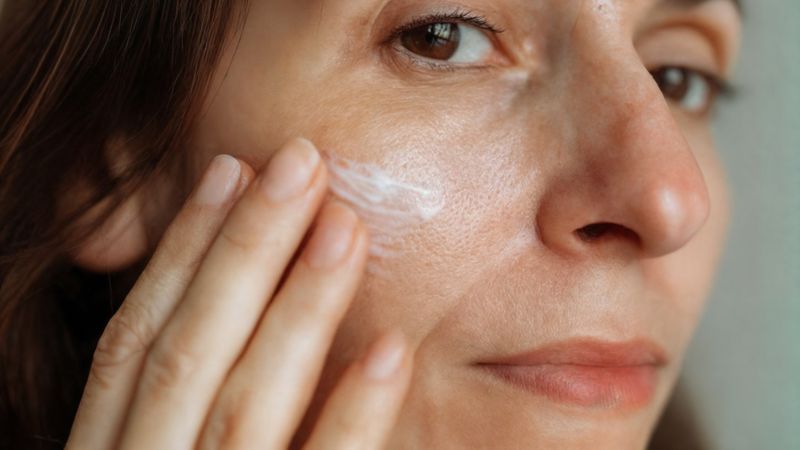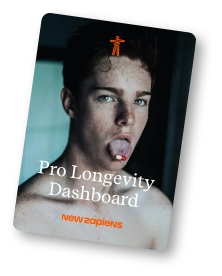Personalized longevity: how YEARS is shaping the future of preventive medicine

Have you ever wondered why some people remain energetic and healthy well into their later years, while others face health complications much earlier? Modern longevity research is tackling that question, and YEARS adds a unique dimension by combining advanced diagnostics, risk analysis, and evidence-based interventions. Their mission? To redefine medicine by shifting from a reactive model—where interventions start only after symptoms arise—to a preventive and personalized approach that aims to detect and address potential issues long before they escalate.
Precision medicine meets longevity: A timely shift
As demographic pressures grow, many health systems are overwhelmed—often targeting diseases like cardiovascular conditions or type 2 diabetes only after clinical symptoms appear. By then, a lot of damage has already been done. YEARS believes that catching issues at the earliest possible stage can help individuals avoid or significantly delay chronic conditions. This mindset aligns with precision medicine, which tailors healthcare to each person’s unique genetic and lifestyle factors rather than sticking to universal protocols.
The evidence-based core
YEARS emphasizes evidence-based preventive medicine, meaning every recommendation is grounded in the latest research from molecular biology, systems medicine, and data science. While lifestyle trends and quick fixes often grab headlines, YEARS aims to take a more robust approach—blending modern diagnostics (like imaging, neurocognitive testing, and psychosocial evaluations) with in-depth molecular and epigenetic analyses. The result? A comprehensive picture of your health trajectory, allowing for interventions that are scientifically validated rather than purely fashionable.
YEARS’ three-step method
- Comprehensive assessment and risk analysis
The process begins with a thorough medical history, an evaluation of lifestyle factors, and an analysis of your genetic and environmental influences. This might sound futuristic, but technologies like genomic sequencing, multi-omics data integration, and advanced imaging are making it more accessible and actionable than ever. YEARS uses cutting-edge algorithms to piece together these findings into a detailed health profile—pointing out early risk factors for diseases that often develop silently over years. - Personalized recommendations and interventions
Armed with this robust data, YEARS constructs a customized prevention plan. This may include everything from dietary tweaks and stress-management practices to advanced screening protocols or targeted therapies. The objective is to maintain high-quality health for the long run—rather than just avoiding illness. As multiple studies have shown, evidence-based lifestyle modifications can reduce the incidence of chronic diseases significantly when implemented early. - Ongoing monitoring and adjustment
True preventive medicine is never a “one-and-done” affair. YEARS schedules regular follow-up appointments to track key metrics, health trends, and newly emerging research. This feedback loop helps detect early deviations—think of it like a personalized "early warning system” for age-related conditions. If a new piece of data or insight comes to light, your plan gets adjusted accordingly.
Why this matters for healthy aging
Beyond the quick fix
YEARS aims to spark a paradigm shift—moving away from what some might call “short-term lifestyle offers” and toward scientifically grounded interventions. Chronic diseases (e.g., heart disease, type 2 diabetes, osteoporosis, certain cancers) often develop gradually, sometimes without obvious symptoms until it’s too late. By focusing on precise early detection, YEARS enables individuals to address subtle changes in health before they become full-blown diagnoses.
Inclusive for a broad demographic
YEARS programs are designed for adults of all ages, though they’re especially relevant for those 35 and older, since that’s when the likelihood of chronic conditions starts to climb. If you’re someone who values an evidence-based approach, wants to leverage the latest technologies, and prefers taking proactive ownership of your health, YEARS may be worth exploring.
The advantages of evidence-based preventive medicine
- Early diagnosis and risk reduction
By identifying risk factors and pathological developments before symptoms appear, YEARS helps you tackle issues at the most manageable phase. - Data-driven decisions
Regular health checkups integrated with the latest research ensure that your recommendations evolve alongside medical progress—meaning you stay aligned with the cutting edge. - Long-term vitality
The core goal is to optimize your “healthspan,” not just your lifespan. Slowing or mitigating age-related declines can lead to a healthier, more fulfilling life overall.
Precision medicine meets real-world challenges
Balancing innovation with accessibility
Breakthrough diagnostics—like some of the advanced imaging and RNA-based urine analyses—can be costly or still in the research pipeline. YEARS acknowledges these hurdles but aims to make cutting-edge methods part of a broader, more inclusive approach. Ethical considerations around data privacy and genetic testing also come into play; robust data governance is essential to building trust and ensuring that innovations truly benefit all.
Integrating advanced technologies
From genomic screening to AI-driven analytics, the infrastructure for precision medicine continues to expand. YEARS’ approach aligns with these developments by collecting large datasets—covering everything from lab results to lifestyle metrics—and interpreting them through sophisticated algorithms. As these technologies mature, the quality and precision of health insights can only improve.
Spotlight on non-invasive diagnostics: Urine tests for early detection
One of the biggest hurdles in prevention is getting people to undergo invasive procedures—like biopsies—when they feel perfectly fine. That’s why there’s such buzz around less invasive screening tools. A recent study from the University of Texas at Arlington, Chan-Zuckerberg Biohub, and Stanford University suggests that analyzing RNA in urine could reveal early warning signs of cancer or kidney disorders, potentially sidestepping the need for more complex interventions.
“Studying the RNA found in urine can detect some ailments in their earliest stages, where they are easily—and cost effectively—managed,”
explains Joseph Buonomo, assistant professor of chemistry at UTA.
While these findings are preliminary, they’re part of a broader drive to develop “liquid biopsy” methods—simple tests that collect and analyze biological markers from fluids like blood or urine. For many, this could significantly reduce barriers to early disease detection.
Practical tips to get started
- Know your baseline
Even a simple blood panel or basic fitness assessment can help you spot early markers for chronic conditions. If you’re ready for more, look into genetic or multi-omics screenings. - Ask about emerging diagnostics
If a doctor recommends a biopsy or more invasive procedure, inquire whether less-invasive options (like advanced imaging or urine-based RNA tests) might complement or precede it. - Manage stress systematically
Chronic stress is tied to hormonal imbalances and epigenetic shifts. Techniques like mindfulness, regular exercise, and better sleep hygiene can have a real impact—particularly over the long haul. - Stay informed, stay curious
Follow reputable journals or medical news sources. There’s a fine line between hype and scientifically validated breakthroughs; aiming for a balanced perspective is key.
A look ahead
As the healthcare landscape evolves, personalized longevity will likely become more mainstream. Programs like YEARS show how evidence-based diagnostics, data integration, and continuous monitoring can help identify problems far sooner than traditional methods. It won’t happen overnight—and yes, challenges around cost, data privacy, and healthcare provider education remain—but the momentum toward a proactive, individualized paradigm is real.
By blending enthusiasm for medical innovation with a healthy measure of scientific skepticism, patients can make informed choices to support long-lasting wellness. And that’s the ultimate aim of preventive medicine: not merely adding years to our lives, but ensuring those years are lived in good health and vitality.
Interested in learning more?
If you’d like to explore how YEARS applies these principles in practice—or simply want to see whether their approach resonates with your health goals—feel free to visit their website at years.co. You can find information on their Medical Center in Berlin, their interdisciplinary team, and the personalized care journey they offer. Because, after all, redefining medicine starts with taking ownership of your health—today, not when symptoms emerge.
References
Author: Volker Blasek
Volker Blasek is a technical editor with a background in horticulture, fueled by a volunteer year on an organic farm. His passion for nature and conservation, paired with his expertise in psychology and science, shapes his engaging and thoroughly researched content. As a medical editor, he has authored over 3,000 articles on topics such as nutrition, diseases, symptoms, naturalopathy, and home remedies, delivering insightful and accessible reporting for a wide range of audiences.




